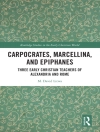From the 1930s to the 1980s, the North American countryside faced a profound cultural transformation in which a once-unified rural society became fragmented and dispersed. Families wishing to remain on the farm were required to accept new levels of automation, while others, unwilling or unable to make the change, migrated to nearby towns or regional cities. The cultural reformulation that resulted saw the emergence of a genuine rural diaspora. The growing cultural and physical separation was especially true for close-knit, ethno-religious communities, Mennonites, in particular. Forced into regional cities, the kaleidoscopic urban culture further fragmented the Mennonites into disparate social entities.
In Diaspora in the Countryside, the phenomena of rural fragmentation is examined by comparing and contrasting two closely-related but distinctive Dutch-Russian Mennonite communities located in different parts of the continent: Kansas and Manitoba, respectively. By systematically comparing these communities, two distinctive responses to the mid-twentieth century ”Great Disjuncture” are made apparent. Royden Loewen also contrasts the cultural changes of these farm families to the cultures their kin adopted in nearby towns and cities. Loewen charts not only the dispersion of two rural communities, but follows their former residents as they reformulate their lives in new settings.












